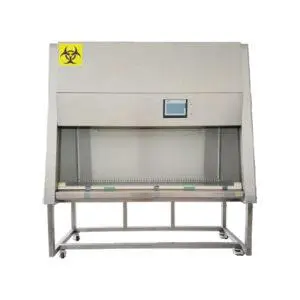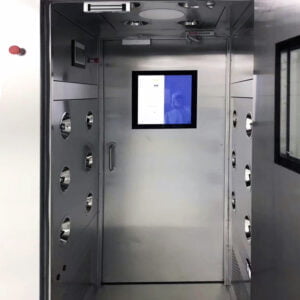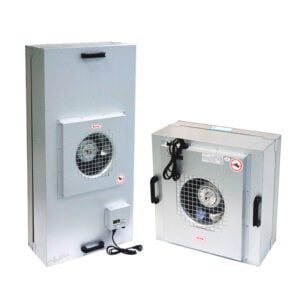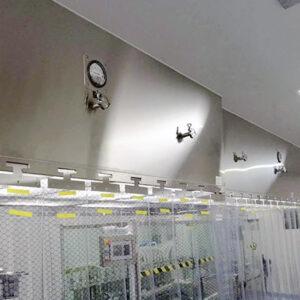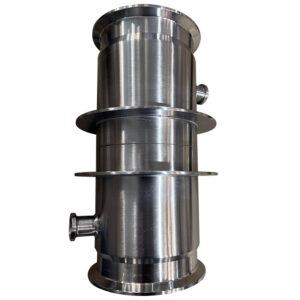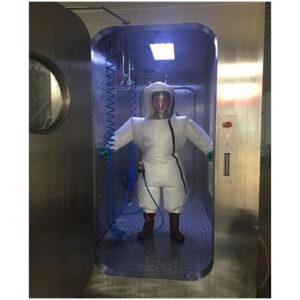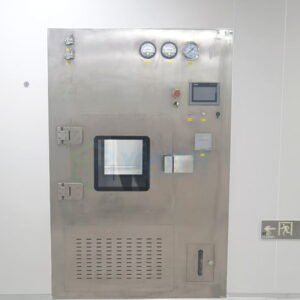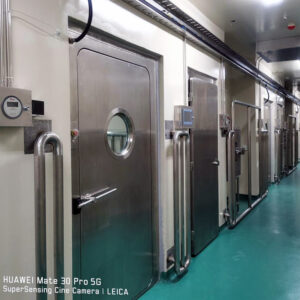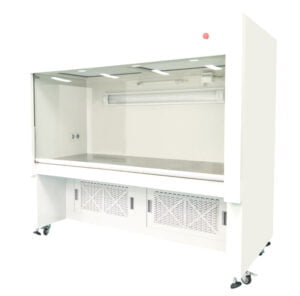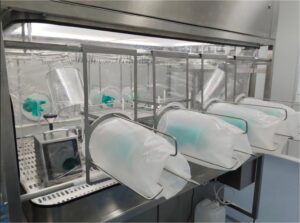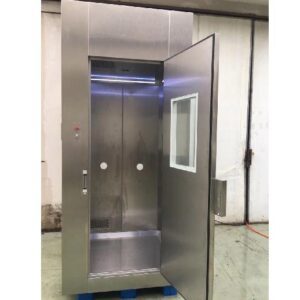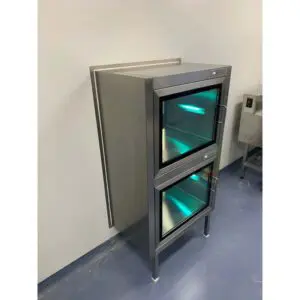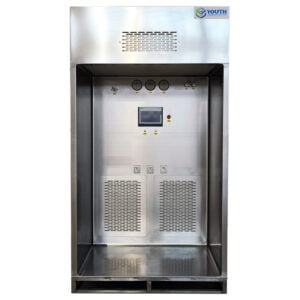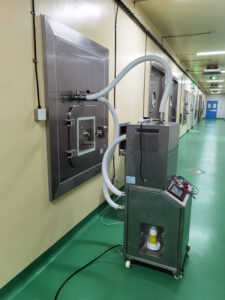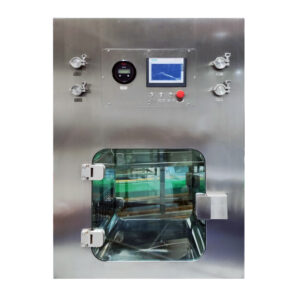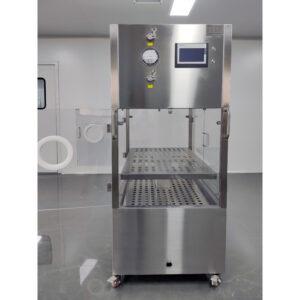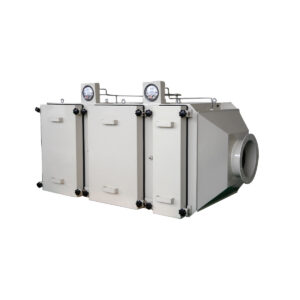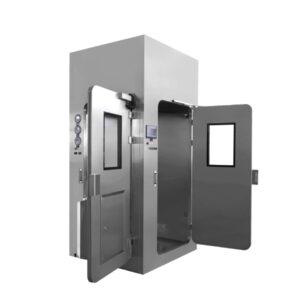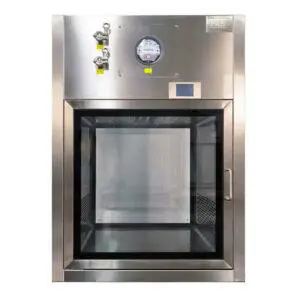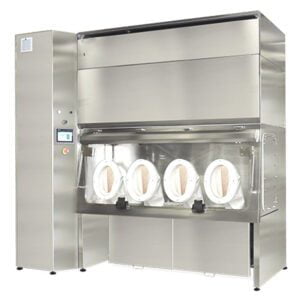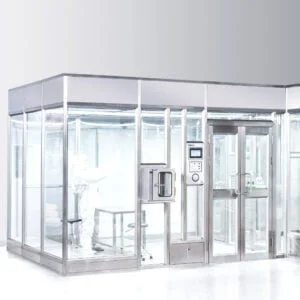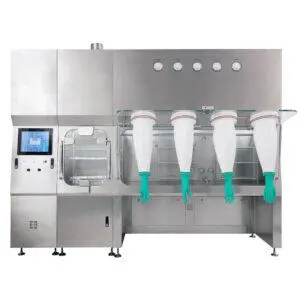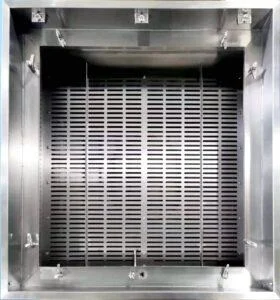High-Efficiency Particulate Air (HEPA) filters are crucial components in maintaining clean air in various environments, from healthcare facilities to industrial settings. Among the advanced filtration technologies, Bag-In-Bag-Out (BIBO) systems for HEPA filters have emerged as a game-changer, offering enhanced safety and efficiency in filter replacement and maintenance. This article delves into the world of BIBO systems, exploring their design, functionality, and impact on air quality management.
BIBO systems represent a significant leap forward in HEPA filter technology. These innovative systems allow for the safe removal and replacement of contaminated filters without exposing personnel or the environment to hazardous particles. By incorporating a containment mechanism, BIBO systems ensure that all potentially harmful substances remain securely enclosed during the filter change process. This article will examine the key features, benefits, and applications of BIBO systems for HEPA filters, highlighting their role in maintaining clean air and protecting human health in critical environments.
As we transition into the main content, it's important to note that BIBO systems have revolutionized the way we approach air filtration maintenance in high-risk areas. From laboratories handling dangerous pathogens to nuclear facilities dealing with radioactive particles, these systems have become indispensable in ensuring the safety of workers and the integrity of controlled environments. Let's explore the intricacies of BIBO systems and their significant impact on air quality management across various industries.
BIBO systems for HEPA filters provide a safe and efficient method for filter replacement, significantly reducing the risk of contamination and exposure to hazardous particles during maintenance procedures.
| Feature | Traditional HEPA Systems | BIBO HEPA Systems |
|---|---|---|
| Filter Replacement Safety | Moderate risk of exposure | High safety, minimal exposure risk |
| Contamination Control | Limited during replacement | Excellent containment |
| Ease of Maintenance | Requires careful handling | Simplified, safer process |
| Application in High-Risk Areas | Limited | Widely used in critical environments |
| Cost-Effectiveness | Lower initial cost, higher long-term risk | Higher initial investment, lower long-term risk |
What are the key components of a BIBO system for HEPA filters?
BIBO systems for HEPA filters are complex yet elegant solutions designed to maintain air quality while prioritizing safety. At their core, these systems consist of several crucial components working in harmony to achieve their purpose.
The primary elements of a BIBO system include the filter housing, which is typically made of robust materials like stainless steel, the HEPA filter itself, and the unique bag-in-bag-out mechanism. This mechanism usually involves a PVC bag that creates a sealed environment during filter changes.
Diving deeper, BIBO systems often incorporate additional features such as pressure gauges to monitor filter performance, secure locking mechanisms to ensure proper sealing, and sometimes pre-filters to extend the life of the main HEPA filter. The design of these components is critical in maintaining the integrity of the containment system and ensuring ease of use for maintenance personnel.
BIBO systems for HEPA filters integrate advanced safety features and high-quality materials to create a secure and efficient filtration solution for critical environments.
| Component | Function | Material |
|---|---|---|
| Filter Housing | Encases the HEPA filter | Stainless Steel |
| HEPA Filter | Removes particulates | Glass Fiber or Synthetic Media |
| Bag-In-Bag-Out Mechanism | Enables safe filter changes | PVC or Similar Polymer |
| Pressure Gauges | Monitor filter performance | Various |
| Locking Mechanisms | Ensure proper sealing | Metal Alloys |
How does the bag-in-bag-out process enhance safety during filter changes?
The bag-in-bag-out process is the cornerstone of BIBO systems, providing a revolutionary approach to filter maintenance in high-risk environments. This process significantly enhances safety by creating a continuous barrier between the contaminated filter and the surrounding environment.
During a filter change, a new PVC bag is attached to the housing, and the contaminated filter is pulled into this bag without breaking the containment seal. The old filter, now securely enclosed in the bag, can be safely removed and disposed of without releasing contaminants into the air.
This ingenious process not only protects maintenance personnel from direct exposure to hazardous particles but also prevents cross-contamination of the surrounding area. The simplicity and effectiveness of this method have made BIBO systems the go-to choice for facilities dealing with dangerous biological, chemical, or radioactive materials.
The bag-in-bag-out process in BIBO systems provides a foolproof method for filter replacement, virtually eliminating the risk of contamination spread during maintenance procedures.
| Step | Action | Safety Benefit |
|---|---|---|
| 1 | Attach new bag to housing | Establishes containment |
| 2 | Remove filter into bag | Maintains seal |
| 3 | Seal and remove bag | Prevents contamination spread |
| 4 | Insert new filter | Ensures continuous protection |
What industries benefit most from BIBO HEPA filtration systems?
BIBO HEPA filtration systems find their most crucial applications in industries where air quality is paramount and the risks associated with contamination are high. The healthcare sector, particularly in areas like isolation wards and operating rooms, relies heavily on these systems to maintain a sterile environment and protect both patients and medical staff.
Pharmaceutical manufacturing facilities also benefit significantly from BIBO systems. These environments require exceptionally clean air to ensure product quality and comply with stringent regulatory standards. The ability to change filters without compromising the cleanroom's integrity is invaluable in this context.
Nuclear power plants and research facilities handling radioactive materials are other prime beneficiaries of BIBO technology. The systems' ability to contain potentially radioactive particles during filter changes is crucial for maintaining safety standards in these high-risk environments.
BIBO HEPA filtration systems are indispensable in industries where air quality directly impacts human health, product integrity, or environmental safety, providing a robust solution for maintaining clean air in critical settings.
| Industry | Application | Key Benefit |
|---|---|---|
| Healthcare | Operating Rooms, Isolation Wards | Infection Control |
| Pharmaceuticals | Cleanrooms, Manufacturing Areas | Product Purity |
| Nuclear | Power Plants, Research Facilities | Radioactive Containment |
| Biotechnology | Laboratories, Testing Facilities | Contamination Prevention |
How do BIBO systems contribute to overall air quality management?
BIBO systems play a crucial role in comprehensive air quality management strategies across various industries. By ensuring the safe and efficient replacement of contaminated filters, these systems contribute significantly to maintaining consistently high air quality standards.
One of the primary ways BIBO systems enhance air quality management is by minimizing downtime during filter changes. Traditional filter replacement methods often require shutting down entire sections of a facility, potentially compromising air quality during the process. BIBO systems allow for quick and safe filter changes without disrupting the overall air filtration system.
Furthermore, the reliability of BIBO systems in containing contaminants during maintenance procedures means that facilities can adhere to stricter air quality standards with greater confidence. This is particularly important in environments where even minor lapses in air quality can have serious consequences, such as in pharmaceutical cleanrooms or hospital isolation wards.
BIBO systems for HEPA filters are integral to maintaining consistent, high-quality air filtration, allowing facilities to uphold stringent air quality standards with minimal disruption to operations.
| Aspect | Impact on Air Quality Management |
|---|---|
| Downtime Reduction | Maintains continuous filtration |
| Contamination Control | Ensures consistent air quality |
| Maintenance Efficiency | Allows for more frequent filter changes |
| Regulatory Compliance | Supports adherence to strict standards |
What are the cost implications of implementing BIBO systems?
Implementing BIBO systems for HEPA filters involves careful consideration of both upfront costs and long-term benefits. While the initial investment in BIBO technology may be higher compared to traditional HEPA filter systems, the long-term advantages often justify the expense.
The primary cost factors include the specialized housing units, the BIBO mechanisms themselves, and potentially more expensive filters designed for compatibility with these systems. However, these costs are offset by several factors that contribute to long-term savings and operational efficiency.
One significant area of cost savings comes from reduced downtime during filter changes. The ability to quickly and safely replace filters without shutting down entire systems or risking contamination can lead to substantial operational savings over time. Additionally, the enhanced safety features of BIBO systems can result in lower insurance premiums and reduced risk of workplace incidents, further contributing to cost-effectiveness.
While BIBO systems for HEPA filters may have higher initial costs, their long-term benefits in terms of operational efficiency, safety, and reduced downtime often result in significant cost savings over the life of the system.
| Cost Factor | Initial Impact | Long-Term Benefit |
|---|---|---|
| Equipment | Higher upfront cost | Improved durability and performance |
| Maintenance | Specialized training required | Reduced frequency and duration of maintenance |
| Safety | Investment in protective features | Lower risk of incidents and associated costs |
| Operational Efficiency | Initial learning curve | Increased uptime and productivity |
How do BIBO systems integrate with existing HVAC infrastructure?
Integrating BIBO systems into existing HVAC infrastructure is a critical consideration for facilities looking to upgrade their air filtration capabilities. The process requires careful planning and execution to ensure seamless integration without compromising the existing system's performance.
BIBO systems are designed with flexibility in mind, allowing for relatively straightforward integration into various HVAC setups. This often involves modifying existing ductwork to accommodate the BIBO housing units and ensuring proper airflow dynamics are maintained throughout the system.
One of the key advantages of BIBO systems is their modular nature, which allows for phased implementation in large facilities. This modularity enables organizations to upgrade their filtration systems gradually, minimizing disruption to operations and spreading out the investment over time.
BIBO systems offer a flexible and modular solution for upgrading HVAC infrastructure, allowing facilities to enhance their air filtration capabilities with minimal disruption to existing operations.
| Integration Aspect | Consideration | Benefit |
|---|---|---|
| Ductwork Modification | May require adjustments | Improved airflow and filtration efficiency |
| System Compatibility | Ensures seamless operation | Enhances overall HVAC performance |
| Phased Implementation | Allows gradual upgrade | Minimizes operational disruption |
| Monitoring Integration | Incorporates advanced sensors | Enables better system oversight |
What future developments can we expect in BIBO HEPA filtration technology?
The field of BIBO HEPA filtration technology is continually evolving, with ongoing research and development aimed at enhancing efficiency, safety, and user-friendliness. As we look to the future, several exciting developments are on the horizon.
One area of focus is the integration of smart technology into BIBO systems. This could include advanced sensors and IoT connectivity, allowing for real-time monitoring of filter performance and predictive maintenance scheduling. Such innovations would further improve the efficiency and reliability of these systems.
Another promising direction is the development of more sustainable materials for both filters and containment bags. Researchers are exploring biodegradable options that maintain the high standards of safety and performance while reducing environmental impact.
The future of BIBO HEPA filtration technology is likely to see increased integration of smart technologies and sustainable materials, further enhancing the efficiency, safety, and environmental friendliness of these critical systems.
| Future Development | Potential Impact | Timeline |
|---|---|---|
| Smart Sensors | Enhanced monitoring and maintenance | Near-term |
| Sustainable Materials | Reduced environmental impact | Mid-term |
| AI-driven Optimization | Improved system efficiency | Long-term |
| Nanotech Filters | Higher filtration efficiency | Long-term |
In conclusion, BIBO systems for HEPA filters represent a significant advancement in air quality management and safety. These systems offer unparalleled protection for personnel and environments in critical settings, from healthcare facilities to nuclear power plants. The bag-in-bag-out mechanism provides a foolproof method for filter replacement, virtually eliminating the risk of contamination during maintenance procedures.
While the initial investment in BIBO technology may be higher than traditional systems, the long-term benefits in terms of operational efficiency, safety, and reduced downtime often result in significant cost savings. The flexibility and modularity of BIBO systems also make them an attractive option for facilities looking to upgrade their existing HVAC infrastructure.
As we look to the future, the integration of smart technologies and the development of more sustainable materials promise to further enhance the capabilities of BIBO HEPA filtration systems. These advancements will continue to solidify the role of BIBO systems as a cornerstone of air quality management in critical environments.
For facilities dealing with high-risk contaminants or requiring stringent air quality control, BIBO systems for HEPA filters offer a robust, efficient, and future-proof solution. As air quality concerns continue to grow globally, the importance of advanced filtration technologies like BIBO systems will only increase, making them an essential component in the ongoing effort to create safer, cleaner environments across various industries.
For more information on BIBO systems and other advanced air filtration solutions, visit 'YOUTH', a leading provider of cleanroom equipment and biosafety purification systems.
External Resources
Understanding HEPA Filtration – Comprehensive guide on HEPA filters by the U.S. Environmental Protection Agency.
Cleanroom Technology: BIBO Systems – Article discussing the containment solutions provided by BIBO systems in cleanroom environments.
ASHRAE Handbook: HVAC Systems and Equipment – Detailed information on HVAC systems, including advanced filtration technologies.
CDC Guidelines for Environmental Infection Control in Health-Care Facilities – Guidelines that include information on air filtration in healthcare settings.
Nuclear Air Cleaning Handbook – Comprehensive resource on air cleaning systems in nuclear facilities, including BIBO systems.
ISO 14644: Cleanrooms and Associated Controlled Environments – International standards for cleanrooms, which often utilize BIBO HEPA filtration systems.
Related Contents:
- Bag-In/Bag-Out (BIBO) Systems: Operation and Maintenance Guide
- The Cost-Effectiveness of BIBO Systems in Industrial Applications
- The Intricate World of BIBO Filter Housing
- Unveiling the Power of Bag-In-Bag-Out Systems
- Nuclear Safety Revolution: BIBO Systems Enhance Protection
- Maintaining BIBO Filter Housings: Best Practices for Optimal Performance
- Introduction
- Ensuring Safety and Cleanliness: HEPA Filters in Biosafety Passboxes
- Revolutionizing Safety: BIBO Systems in Hazardous Waste Management


